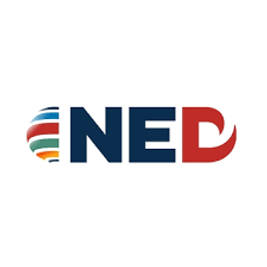Charting Authoritarian Abuses of the FATF Standards
This project looks at how anti-financial crime standards are being co-opted to meet authoritarian ends.
The universal standards of the Financial Action Task Force (FATF) for preventing money laundering and terrorism financing are intended to ensure a coordinated global response to organised crime, corruption and the threats posed by terrorism and proliferation. However, these standards are increasingly misused by some states to suppress and control threats and to pursue other domestic political interests. Common targets include pro-democracy and pro-accountability advocates, investigative journalists, human rights lawyers, watchdogs and political opposition figures.
At present, instances of Authoritarian Abuses are scattered worldwide and there is insufficient understanding of how they may constitute a global trend. This project aims to consolidate currently isolated cases of Authoritarian Abuses, assembling a taxonomy of the most common tactics. By building this evidence base, the project aims to equip existing advocacy efforts with impartial and compelling research to embolden their calls for accountability from national authorities, and should contribute to building resilience among grassroots actors and organisations.
Aims and objectives
With the guidance and partnership of a dedicated expert Working Group, the project aims to support efforts to resist the wrongful and deliberate weaponisation of anti-financial crime tools and standards. To this end, the project aims to:
- Convert anecdotal evidence of Authoritarian Abuses into a publicly available and trustworthy body of research.
- Supplement the non-profit organisation sector’s engagement on adverse impacts of the global anti-financial crime system by involving additional civil society actors including investigative journalists, parliamentarians and political opposition figures.
- Provide local-level organisations with a reliable evidence base on the global nature of Authoritarian Abuses to add force to existing advocacy efforts.
- Engage with decision-makers at the international level, including within the FATF and UN systems, on research findings and potential responses.
- Involve and raise awareness within the private sector on how organs of the financial system may come to be complicit in Authoritarian Abuses, and how to include the phenomenon in assessing country risk.
Project sponsor
National Endowment for Democracy (NED)
The National Endowment for Democracy (NED) is a private, nonprofit foundation dedicated to the growth and strengthening of democratic institutions around the world. Each year, NED makes more than 2,000 grants to support the projects of non-governmental groups abroad who are working for democratic goals in more than 100 countries.
Find out more





